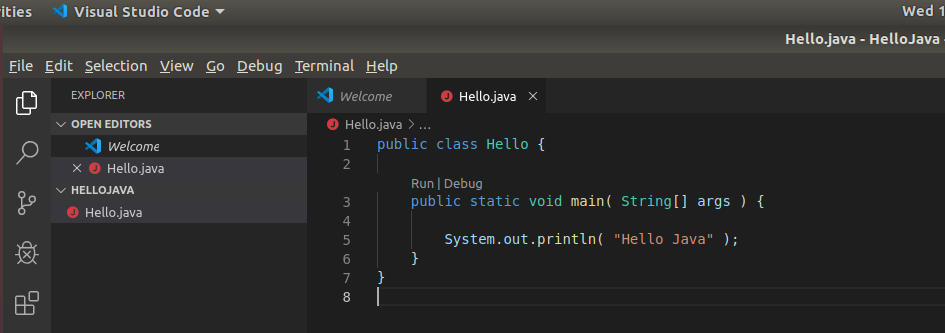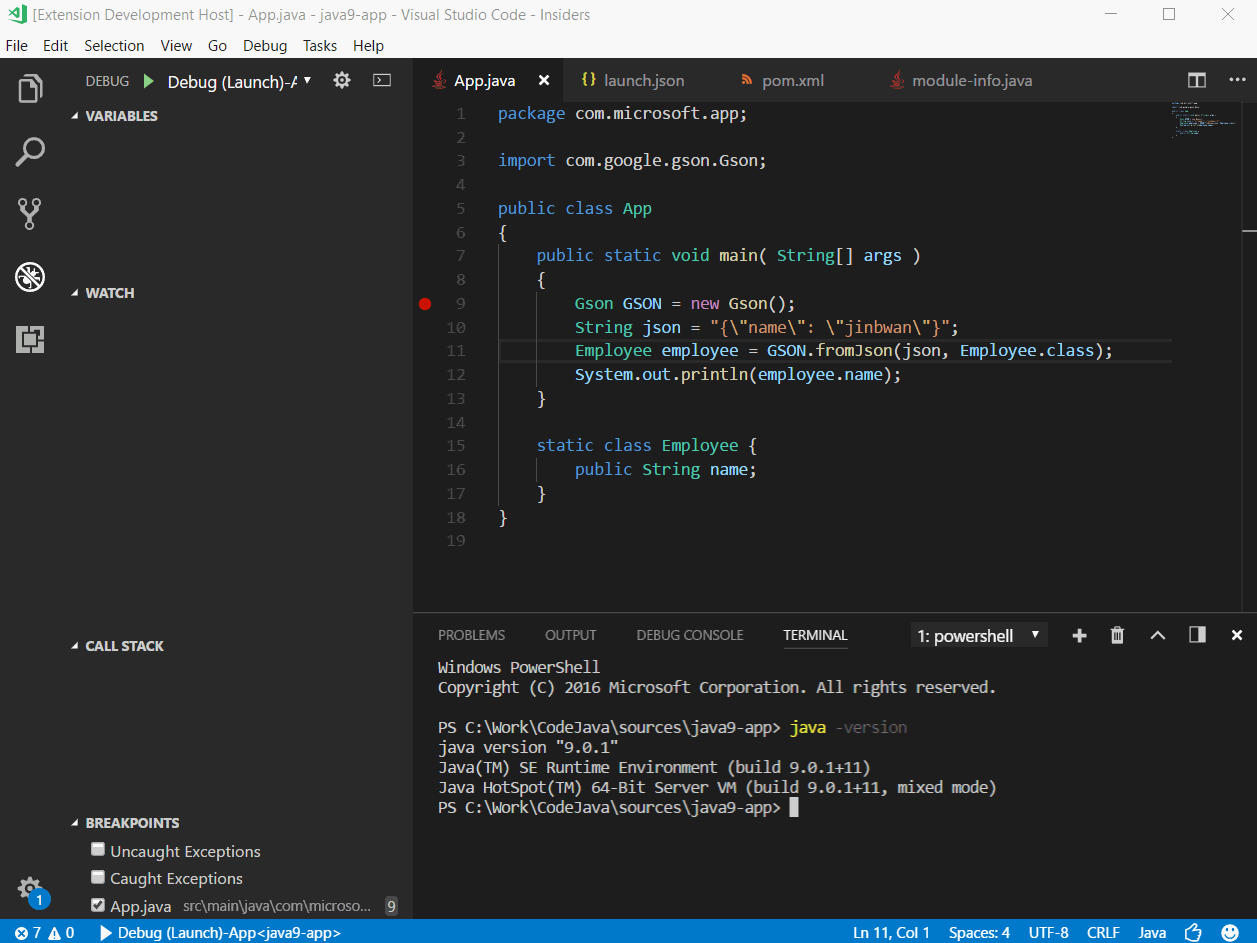
 Basic Gradle support (Android not supported). Annotation processing support (automatic for Maven projects). 📦 Language Support for Java™ by Red Hat. Microsoft has a Extension Pack for Java extension that bundles the following 6 extensions: If you work with a framework like Spring Boot, you may like to have some assistance there also. Support for a build tool such as Maven or Gradle (unless you are command-line junkie). General language support (compilation, execution, syntax highlighting, code completion). Working with Java, you will need extensions for: Install the Extension Pack for Java extension To be set-up correctly, usually you must add the location of the installed JDK to the system path variable for your OS. It just helps you download the installation files it seems.
Basic Gradle support (Android not supported). Annotation processing support (automatic for Maven projects). 📦 Language Support for Java™ by Red Hat. Microsoft has a Extension Pack for Java extension that bundles the following 6 extensions: If you work with a framework like Spring Boot, you may like to have some assistance there also. Support for a build tool such as Maven or Gradle (unless you are command-line junkie). General language support (compilation, execution, syntax highlighting, code completion). Working with Java, you will need extensions for: Install the Extension Pack for Java extension To be set-up correctly, usually you must add the location of the installed JDK to the system path variable for your OS. It just helps you download the installation files it seems. 

It covers every platform/OS.Īlternatively, you can install the Extension Pack for Java extension (as we will discuss next), and run the command “Java: Install New JDK”. To install this JDK, you can follow the installation guide. Crazy name, right? Sounds like a transformer! 🤖 The summary is that the recommendation is to install Adoptium Eclipse Temurin’s JDK because it is run by a reputable open source consortium. The various distributions are discussed here.

Some companies charge for their JDK and there are some funny terms and conditions associated with them. The other (slightly annoying) thing with JDKs now is that many different JDK distributions exist. Doh! Which JDK distribution should I use? Update: The release of v1.8 (June 30th, 2022) of the Language Support for Java by Red Hat extension now requires at least JDK 17. So, choose a JDK between version 8 and 17 to be compatible with VS Code.
Every three years, the September release will be a Long-Term-Support (LTS) release, which gets updates for at least three years.įor local development, you can install whatever version you want! However, nowadays Java 8 is usually the minimum version used and it is advisable to install nothing less than that.īusinesses tend to stick with the latest LTS version for security reasons. Additionally, there are quarterly bug fix updates. A new major version number is released every six months, in March and September. Java versions are released more frequently now than in the past: For example, if you want to use the newer functional programming features found in Java 8, then you need to install at least the Java 8 JDK. Since the JDK supplies the compiler for your Java programs, the JDK you install determines what Java version you are able to code in. OpenJDK 64-Bit Server VM (build 11.0.14+9-Ubuntu-0ubuntu2.20.04, mixed mode, sharing) OpenJDK Runtime Environment (build 11.0.14+9-Ubuntu-0ubuntu2.20.04)








 0 kommentar(er)
0 kommentar(er)
